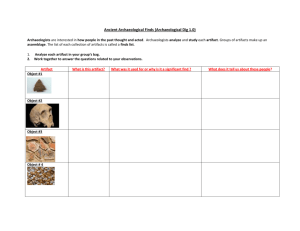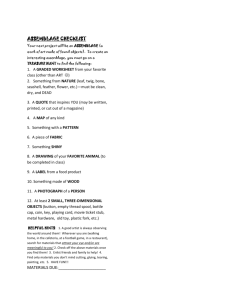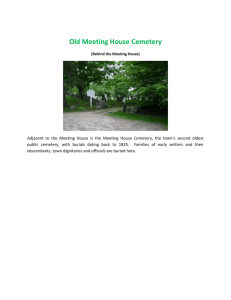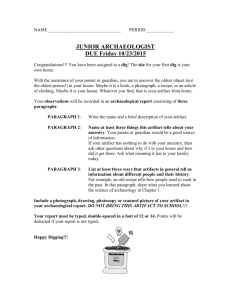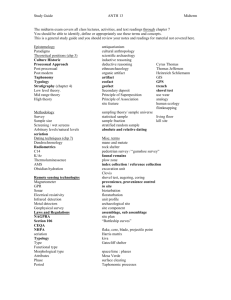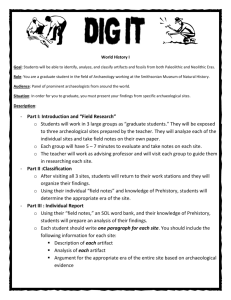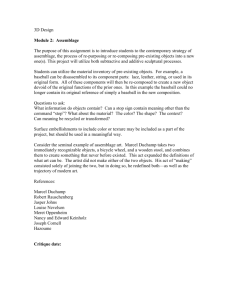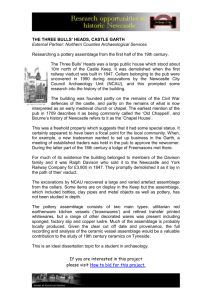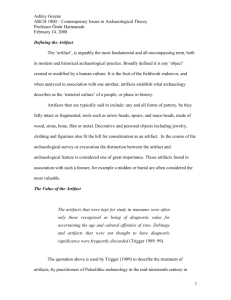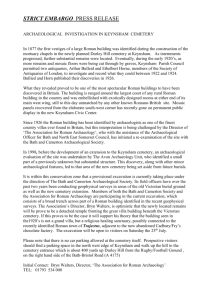chapter list - California State University, Sacramento
advertisement
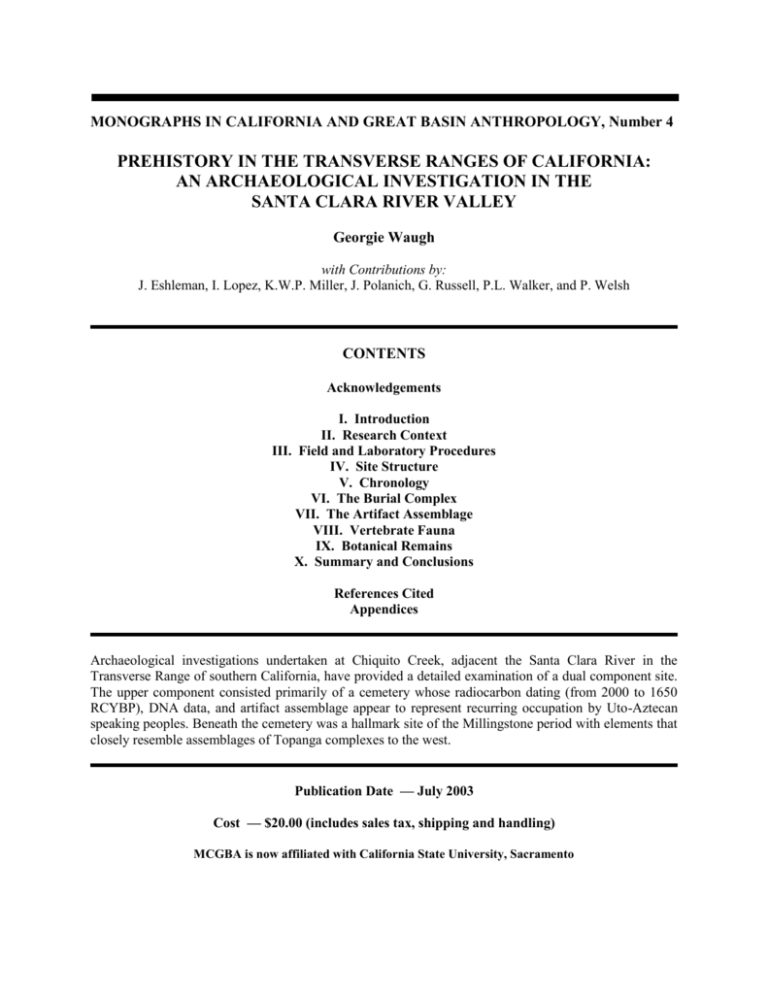
MONOGRAPHS IN CALIFORNIA AND GREAT BASIN ANTHROPOLOGY, Number 4 PREHISTORY IN THE TRANSVERSE RANGES OF CALIFORNIA: AN ARCHAEOLOGICAL INVESTIGATION IN THE SANTA CLARA RIVER VALLEY Georgie Waugh with Contributions by: J. Eshleman, I. Lopez, K.W.P. Miller, J. Polanich, G. Russell, P.L. Walker, and P. Welsh CONTENTS Acknowledgements I. Introduction II. Research Context III. Field and Laboratory Procedures IV. Site Structure V. Chronology VI. The Burial Complex VII. The Artifact Assemblage VIII. Vertebrate Fauna IX. Botanical Remains X. Summary and Conclusions References Cited Appendices Archaeological investigations undertaken at Chiquito Creek, adjacent the Santa Clara River in the Transverse Range of southern California, have provided a detailed examination of a dual component site. The upper component consisted primarily of a cemetery whose radiocarbon dating (from 2000 to 1650 RCYBP), DNA data, and artifact assemblage appear to represent recurring occupation by Uto-Aztecan speaking peoples. Beneath the cemetery was a hallmark site of the Millingstone period with elements that closely resemble assemblages of Topanga complexes to the west. Publication Date — July 2003 Cost — $20.00 (includes sales tax, shipping and handling) MCGBA is now affiliated with California State University, Sacramento
